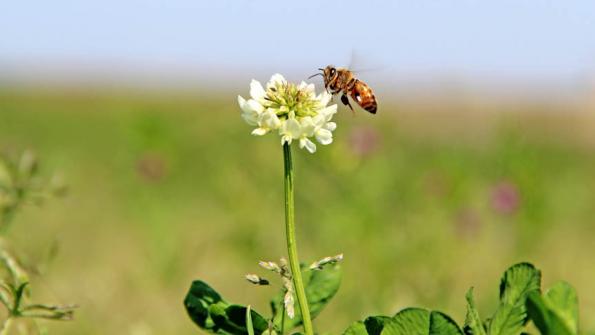June 17, 2013

The Honeygate scandal is over; or at least the latest incarnation of honey laundering has come to a close. Two major U.S. honey packers, Groeb Farms in Michigan and Honey Solutions in Texas, confessed to importing million of dollars in mislabeled honey. Groeb Farms will pay a $2 million penalty; Honey Solutions will pay a $1 million penalty. Both companies agreed to adhere to honey import compliance programs, and Groeb fired several senior executives.
Despite legal closure, Honeygate, in other forms, is still bubbling under the surface. In reality, with billions of dollars up for grabs on the counterfeit food market, Honeygate is going nowhere.
5 takeaways
1. Get caught honey laundering? Pay a fine, act contrite, issue a mea culpa, promise to make changes, follow a compliance program, and then let the band play on. Other companies involved in illegal honey imports watched the entire legal affair and took good notes: Multiple millions in profit against a million-dollar penalty can pencil out to very profitable math. (A pending civil suit against Groeb Farms and Honey Solutions may pack more financial sting than Department of Justice penalties. See #5 below.)
2. China knocking. The Chinese are not about to quit knocking on the import door. American consumers demand 400 million pounds of honey per year; but U.S. domestic production is capable of only producing 150 million pounds per year. The 250-million pound void is an El Dorado opportunity for foreign companies; particularly from China, the world’s No. 1 honey producer at 300,000 tons per year.
(See Honey laundering trails all lead to China)
3. Few safeguards. Counterfeit food (laundering, dilution, and false labeling) robs Americans of an estimated $10 billion annually. A bright spot in determining a legitimate product may be True Source Honey. True Source, a honey industry consortium, offers companies certification after a rigorous testing regime that begins with point-of-origin sourcing in the field and ends in lab analysis.
4. Consumer health. U.S. consumers pay a health price for laundered honey. It’s true that many shoppers simply care about price and don’t want to know the ingredient details — but they should. Laundered Chinese honey has tested positive for harmful antibiotics, lead, and various ag chemicals. China’s 2013 food scandal list is literally growing by the month.
5. Footing the bill. Ultimately, the U.S. honey industry pays the financial price for Honeygate. When honey is dumped on the U.S. market, American honey producers take a severe financial beating. On the heels of Honeygate, three U.S. honey producers have filed a class action suit (Adee Honey Farms et al. v. Groeb Farms, Inc. et al.) claiming financial injury as a result of Groeb's and Honey Solutions' conduct. Considering that Groeb Farms and Honey Solutions have already admitted to the import, purchase and sale of mislabeled Chinese honey — the class action suit has strong legs.
Twitter: @CBennett71
Blog archive
Agriculture's burden of technological intolerance
Nuggets of wisdom from the March Against Monsanto
Farmer’s death puts national focus on killer bees
Eat your insects — the UN knows best
Honey bees a landmine solution?
China's food safety a giant scam
Cliff Young — the farmer who outran the field
Wine skeptic takes on climate change report
Killing cattle softly: slaughterhouse or gun?
Farmer feeds hogs from finest Vegas buffets
PETA drones a trophy prize for US hunters
Dairy farmer blends vodka from cow’s milk
Demon seeds: Searching for the planet's hottest pepper
Biggest wine hoax in history reveals trade secrets
You May Also Like




